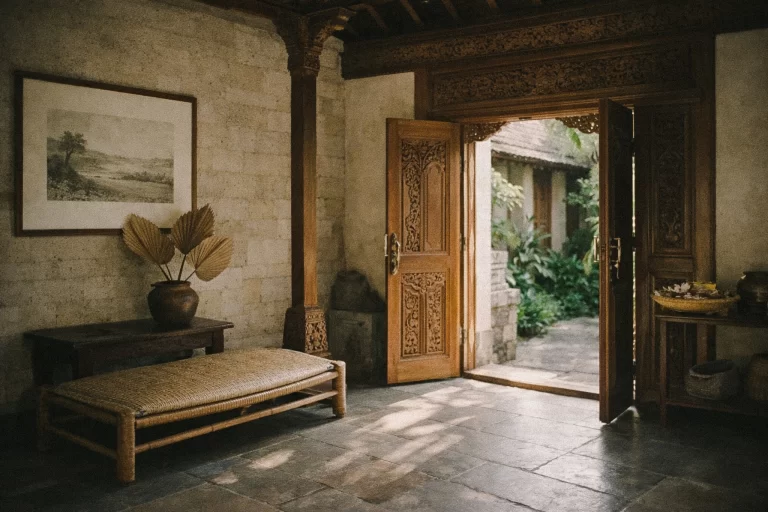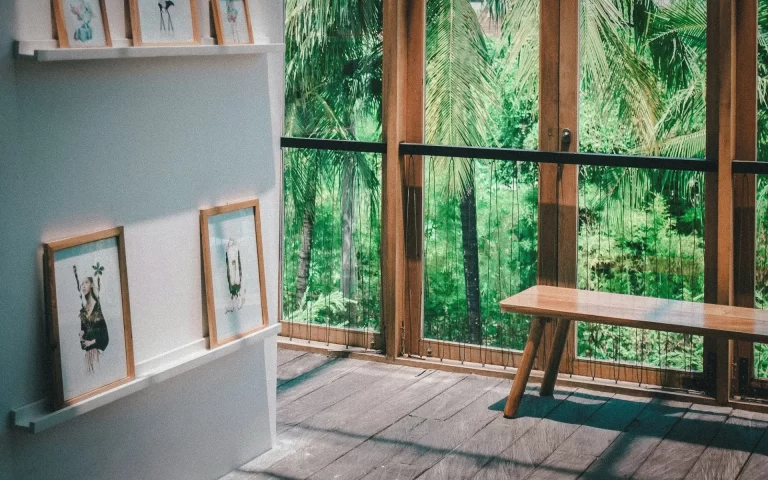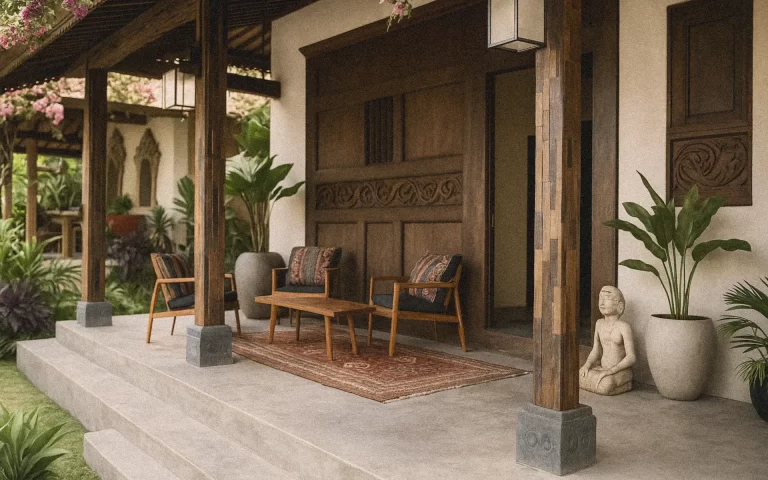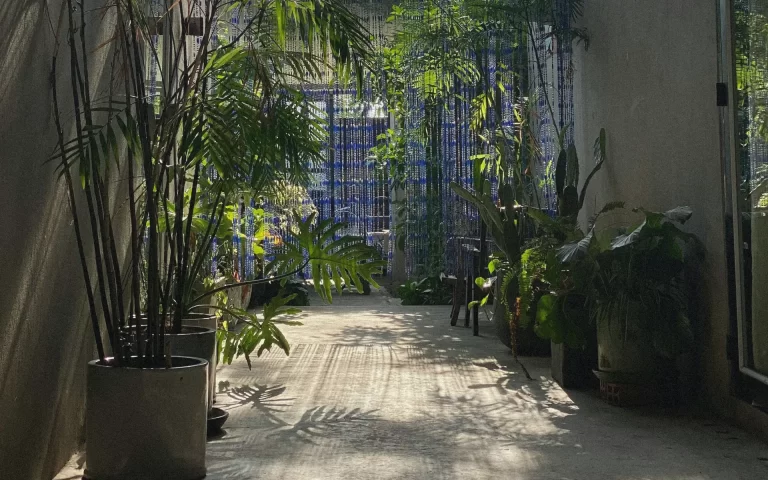The Insider's Guide to Rugs in Bali (Because Your Villa Deserves Better)
By Des Res Bali
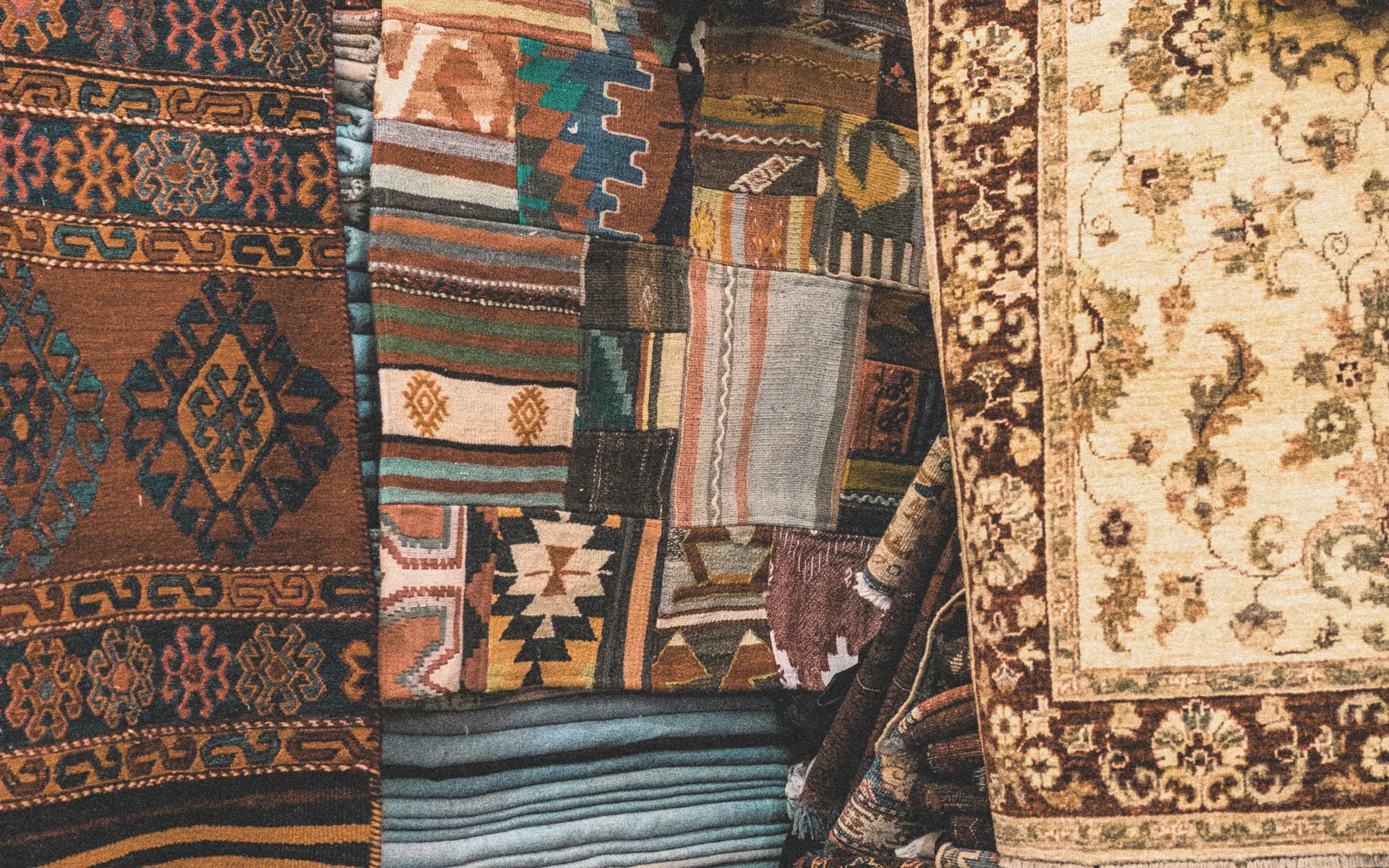
Quick heads up: We’re not rug appraisers or antique authenticators. Prices, availability, and authenticity can vary — so trust your eyes, do your research, and don’t be afraid to negotiate. This guide shares our favorite spots and insider tips, but your mileage may vary.
Let’s be real.
You’ve spent months (maybe years) designing your Bali villa, sourcing reclaimed teak, getting the proportions just right — and now you need a rug that won’t make the whole space look like it was styled by someone’s well-meaning but misguided cousin.
The good news? Bali has some seriously impressive rug dealers tucked away from the tourist trail. The bad news? Finding them requires navigating a maze of overpriced hotel suppliers, knockoff “antiques,” and vendors who think slapping “vintage” on anything woven makes it worth triple the price.
Here’s where to find the real gems — and how to buy smart.
The Standouts: Bali’s Best-Known Rug Sources
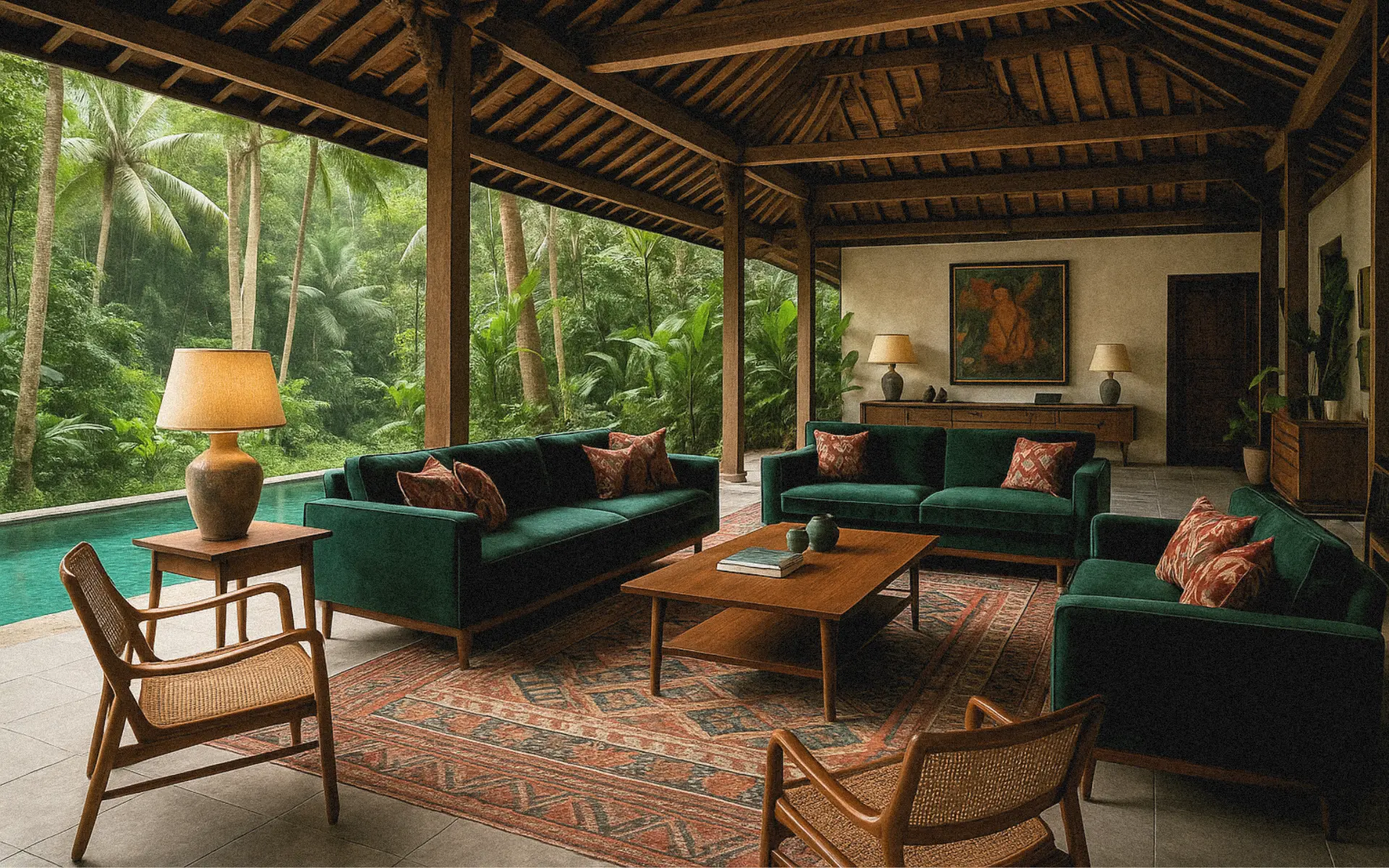
This is one of Bali’s most established names in carpets, with decades of experience importing and selling handmade Persian, Afghan, Indian, and Central Asian rugs. Their showrooms carry everything from decorative kilims to high-end pieces with real provenance, plus services like cleaning and repair.
What makes them special: Their scale and long history in Indonesia means they have consistent access to a wide variety of authentic handmade carpets. You’ll find everything from contemporary designs to traditional weaves, with knowledgeable staff who can guide you through origins and care.
Insider tip: Visit on weekdays when you can get their full attention, and don’t be shy about asking to see pieces that aren’t on the main floor. Some of the most interesting finds are tucked away in storage.
While primarily known for Indonesian textiles, their rug selection includes some stunning traditional pieces from across the archipelago. It’s more about supporting artisan communities than hunting vintage Persians, but the quality is impeccable.
What makes them special: Everything comes with detailed provenance and cultural context. Perfect if you want something meaningful rather than just beautiful.
The Sleeper Hits: Under-the-Radar Gems
Antique shops along Jalan Andong, Ubud
Don’t sleep on Jalan Andong. At first glance, the shops might look a little random — part antiques, part tourist overflow — but behind the clutter you’ll often find dealers who’ve been collecting for decades. This is where patience pays off: the real treasures are usually stashed in back rooms, under stacks, or revealed only after you’ve spent time chatting with the owner.
What to look for: Vintage rugs, old textiles, and one-off handcrafted pieces that aren’t obvious from the street. Go in curious, and don’t be afraid to dig.
Warehouse districts in Denpasar
Several carpet importers keep their stock in no-frills warehouses tucked into Denpasar’s industrial sprawl. They’re not designed for retail, but if you know what you want — or you’re buying multiple pieces — the prices can be unbeatable.
How to access: These places usually run on introductions. Designers, architects, even contractors often know the right doors to knock on, so start asking around.
How to Buy Smart (Without Getting Played)
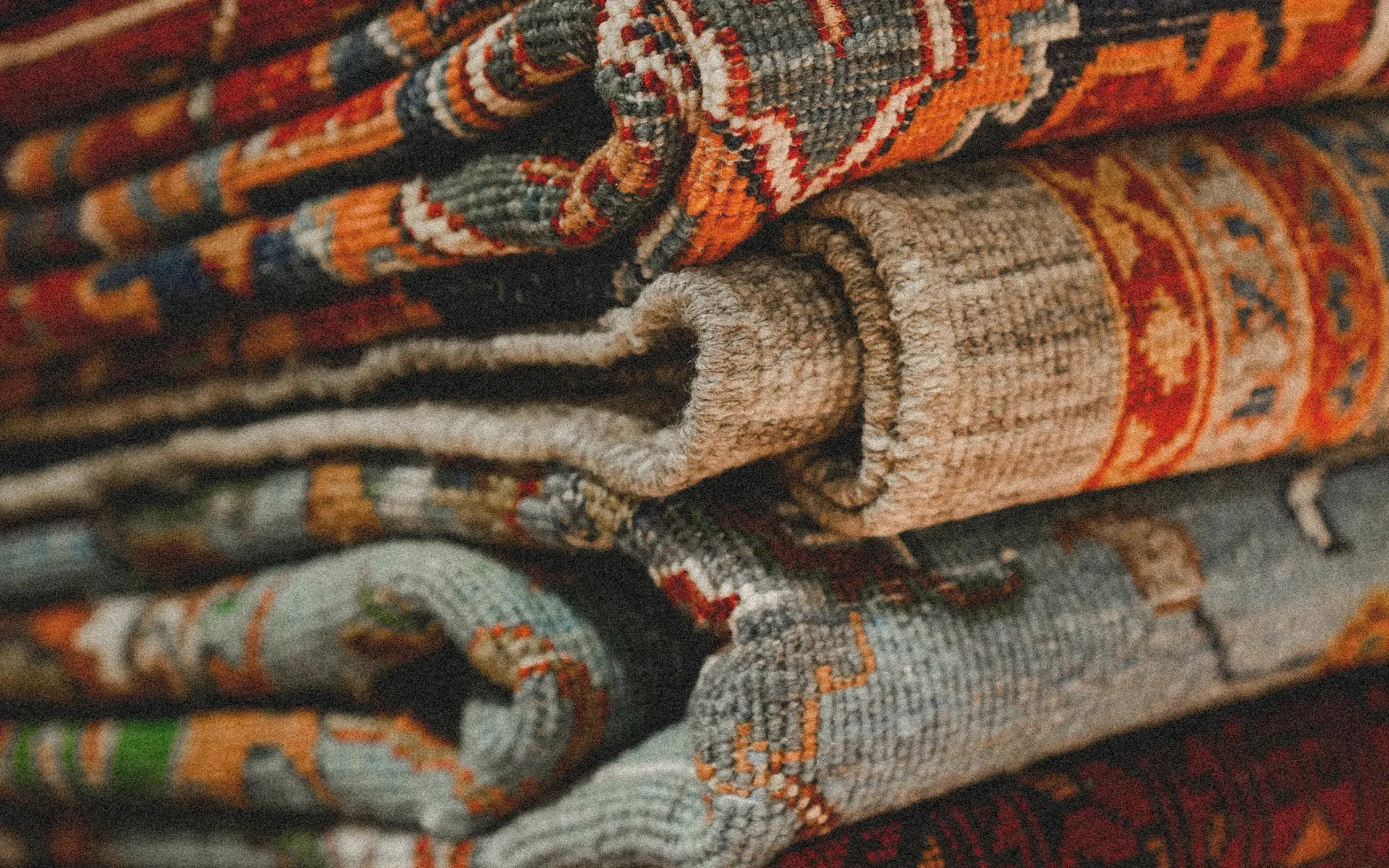
Know Your Knots
Hand-knotted rugs have irregular backs with visible knots. Machine-made rugs have uniform, grid-like patterns on the reverse. It takes two seconds to flip a corner and check.
The Patina Test
Real vintage rugs have natural wear patterns in high-traffic areas and fading that makes sense with how the piece would have been used. Artificially aged rugs often have random “worn” spots that don’t match actual use patterns.
Size Matters (But Not How You Think)
Standard Western sizes (9×12, 8×10) are often machine-made or newer. Traditional hand-woven pieces come in irregular dimensions that reflect their original purpose and loom constraints.
Negotiate (But Don't Be a Dick)
Haggling is expected, but going in with a “everything in Bali should cost $50” attitude will get you nowhere with serious dealers. Start at 70% of the asking price and work from there.
What to Avoid
Tourist market “Persians”: If it’s being sold next to carved wooden penises and “authentic” Balinese masks made in Java, it’s probably not a genuine Isfahan.
Too-good-to-be-true antiques: That 200-year-old silk Kashan for $200? It’s not.
Rushed decisions: Good rugs have been around for decades or centuries. They can wait another week while you think it over.
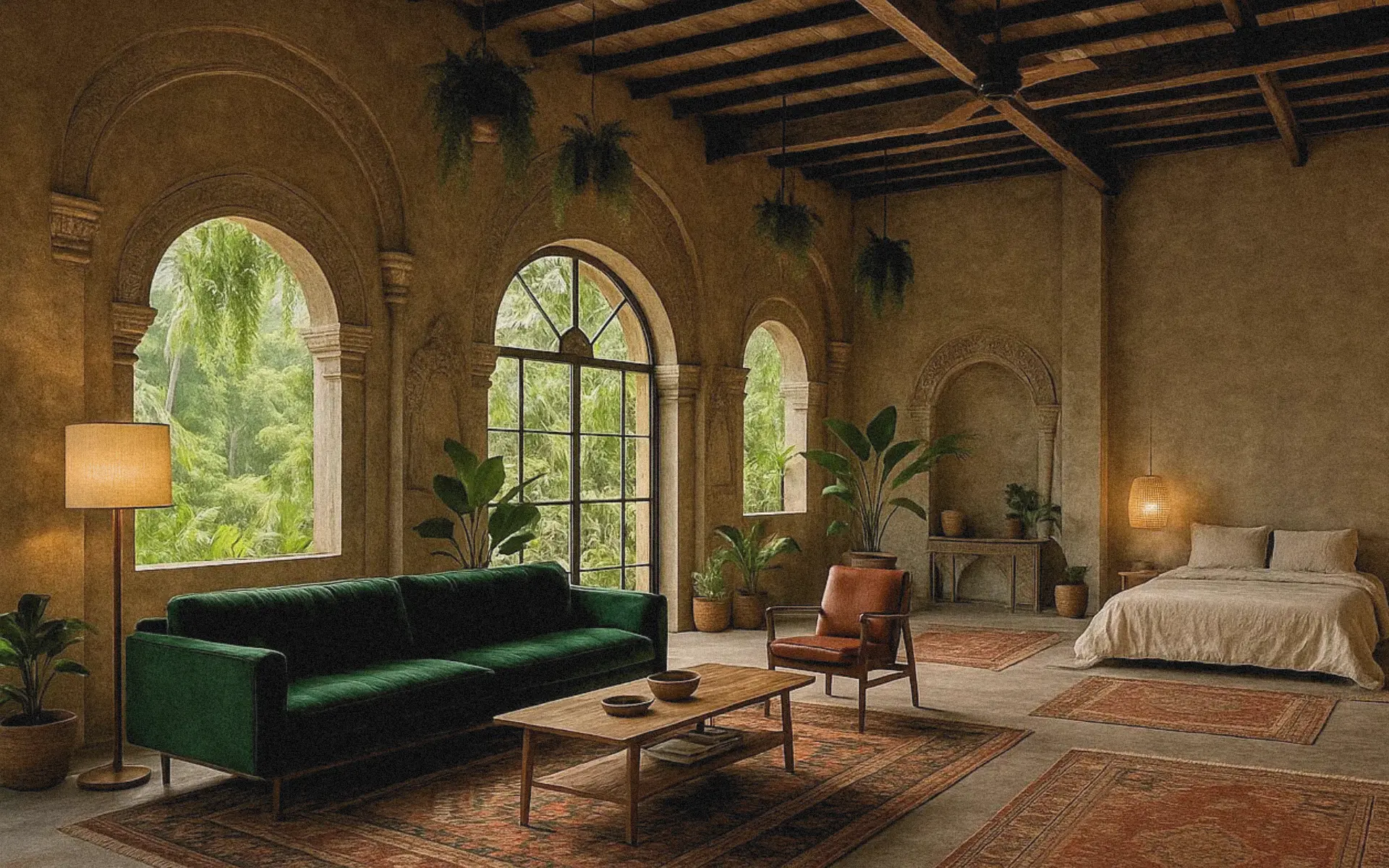
Styling Tips
Scale up: Bali’s high ceilings and open spaces can handle larger rugs than you might use elsewhere. Don’t be afraid to go big.
Mix origins: A vintage Afghan kilim can look stunning with contemporary Balinese furniture. Don’t feel locked into one regional aesthetic.
Consider the climate: Natural fibers handle humidity better than synthetic ones. Wool and cotton age gracefully; polyester just looks sad.
The Bottom Line
Finding the perfect rug for your Bali space is part treasure hunt, part education, part gut instinct. Take your time, learn what you like, and remember — a great rug isn’t just floor covering. It’s the foundation that ties your entire space together.
And if you find yourself falling down the carpet rabbit hole (it happens to the best of us), just remember: you’re not collecting rugs, you’re curating culture. At least, that’s what we tell ourselves.



